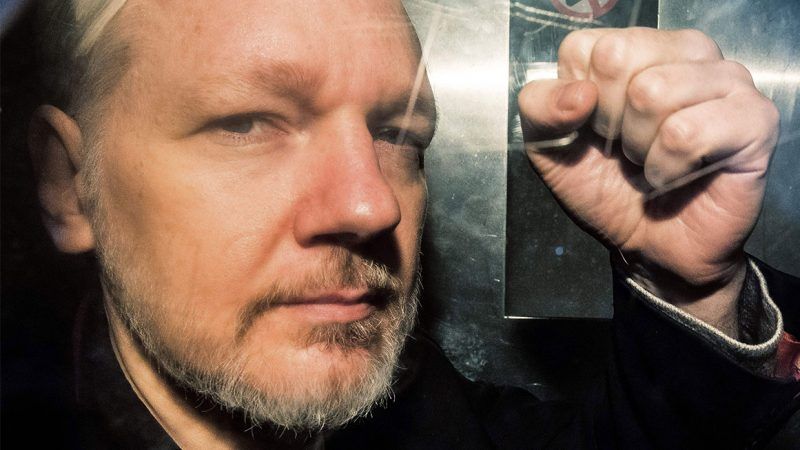Assange Avoids Extradition—For Now
Under the First Amendment, the question of whether Assange qualifies as a legitimate journalist is irrelevant.

A British judge in January denied the U.S. government's request to extradite WikiLeaks founder Julian Assange, who faces 18 federal charges related to publishing classified documents. While it may be tempting to see the decision as a victory for a free press, Westminster Magistrates' Court Judge Vanessa Baraitser is actually fine with prosecuting journalists who reveal secrets—just not with throwing them into solitary confinement.
In 2010, Assange and WikiLeaks arranged to receive and publish top-secret documents leaked by former U.S. Army intelligence analyst Chelsea Manning. Assange was originally indicted in 2018. A superseding 2019 indictment charged him with violating the Espionage Act by obtaining and disclosing "national defense information" as well as violating the Computer Fraud and Abuse Act. Those charges together carry a maximum penalty of 175 years in prison.
Although the Justice Department had prosecuted leakers before, this was the first time it had charged a publisher under the Espionage Act for printing classified information. Civil libertarians warned that the precedent could effectively criminalize common journalistic practices.
Assange initially fought his extradition from Ecuador's embassy in London, where he sought refuge in 2012 to avoid arrest on a Swedish warrant related to sexual assault allegations. Swedish police closed that investigation in 2019, Ecuador revoked Assange's asylum, and London police arrested him.
Assange's attorneys argued that his actions deserved protection as journalism and that his prosecution was politically motivated. The U.S. Justice Department argued that Assange, by publishing thousands of unexpurgated classified documents, far exceeded the scope of responsible journalism.
Judge Baraitser wholeheartedly agreed with the Justice Department on that score. "Unlike the traditional press," she wrote in her 132-page ruling, "those who choose to use the internet to disclose sensitive information in this way are not bound by a professional code or ethical journalistic duty or practice. Those who post information on the internet have no obligation to act responsibly or to exercise judgment in their decisions."
Under the First Amendment, however, the question of whether Assange qualifies as a legitimate journalist is irrelevant. "Freedom of the press" refers to a technology of mass communication, not a profession.
While rejecting Assange's argument that prosecuting him would violate his right to free expression, Baraitser was persuaded by psychiatric testimony that his mental health had steadily declined in custody, creating a "substantial risk" that he would commit suicide in the harsh conditions he was apt to face in the United States. For that reason, and only that reason, Baraitser refused the extradition request.


Show Comments (29)